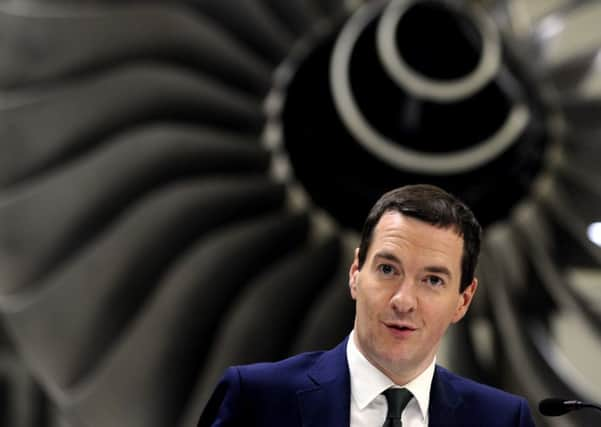YP Comment: Time to invest in skills shortfall


Indeed, the recent floods have exposed the shocking scale of the North-South divide despite David Cameron’s promise to rebalance the national economy in the aftermath of his re-election.
However, this fight for fair funding, and the continuing impasse over Yorkshire’s devolution deal, must not overshadow the scale of the skills deficit here – low levels of academic attainment, coupled with the continuing reluctance of entrepreneurs to invest in longstanding areas of deprivation, means that the Government’s welfare bill has actually increased in many cities and large towns since 2010 despite Chancellor George Osborne’s desire to preside over a “high wage, low welfare” economy.
Advertisement
Hide AdAdvertisement
Hide AdIt cannot go on like this. With a shortage of affordable accommodation driving up the housing benefit bill according to research published today by the Centre for Cities think-tank, it is even more imperative that national, regional and local politicians work continue with business leaders to raise education standards – it is a source of embarrassment that Yorkshire, home to so many world-class universities, is rooted to the bottom of national league tables.
Yet empowering young people with those skills most applicable to an evolving 21st century global economy will not suffice. For, if the most talented individuals are to remain loyal to their white rose roots, and become tomorrow’s innovators and wealth-creators, there still need to be sufficient opportunities here so they do not join the ‘brain drain’ of talented people from Yorkshire who have chosen to pursue careers elsewhere. Even though Ministers are rightly proud of the fact that there are a record number of people in work, their Northern Powerhouse and One Nation agendas are still very much in their infancy. There’s much still to do before this region’s towns and cities can fulfil their own potential as economic powerhouses rather than being a constant drain on the public purse, which benefits no one.
Charity credibility: Rogue tactics besmirch sector
THESE are tough times for the charity sector – its reputation has been tarnished by the unscrupulous tactics of those organisations accused of hounding donors. Even though the number of charities using ‘rogue’ methods is small, it is imperative that the trustees of each and every ‘good cause’ take their duties seriously and ensure that fundraising practices are ethical. As guardians of the public interest, they are duty-bound to ensure that the vulnerable are not exploited.
However, it does not end here. As a Parliamentary report accuses charity bosses and trustees of being either “incompetent or wilfully blind” to aggressive tactics, the ineffectual Charity Commission leaves much to be desired. It was toothless over the Kids Company scandal when the benevolence of donors – and the public sector – was so abused while there is also a growing belief that major charities have become so corporate that executives have lost sight of the fact that their primary duty is to help the vulnerable.
Advertisement
Hide AdAdvertisement
Hide AdThere’s a danger that a disproportionate amount of money is being spent on management overheads rather than the intended recipients. Yet, at the end of the day, the onus should be on the charity sector to get its house in order – and for watchdogs to act if organisations overstep the mark or ignore requests for people to be removed from mailing lists and so on.
The heat is on: Pressure on energy firms hots up
THE bosses of the UK’s ‘big six’ energy suppliers will dismiss the latest 23 per cent rise in complaints as evidence that householders are more aware of their rights as consumers – and that competition is working in the public interest.
This arrogance does not excuse the fact that their pricing practices have lacked transparency. Their deals continue to bamboozle while falls in wholesale prices are not passed on to customers.
Yet their profit margins are now morally indefensible when so many elderly people die each winter because of the cold. David Cameron told Parliament recently that “more needs to be done” on this front – words that must be put into action. The heat is on.